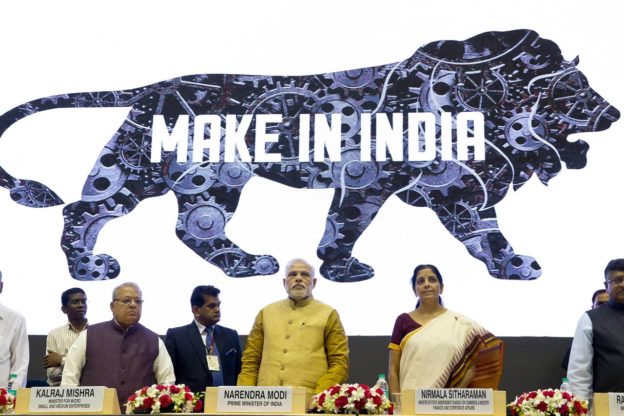Against this backdrop, the ‘Self Reliant India’ initiative puts emphasis on driving the establishment of endemic manufacturing infrastructure backed by a vigorous research and development ecosystem.
The idea of ‘Make in India’ is rooted in the country’s unrivalled capabilities. India has always put significant importance on self-sustenance and reliance as its foundational ideologies. Post-independence, India has continued to build a robust defence sector and emerged triumphant in its effort, becoming the second-largest defence sector in the world. The second largest armed force is at the cusp of a revolution, with the ‘Atmanirbhar Bharat’ inauguration in the Aerospace and Defence industry.
Against this backdrop, the ‘Self Reliant India’ initiative puts emphasis on driving the establishment of endemic manufacturing infrastructure backed by a vigorous research and development ecosystem. The program focuses on reducing the dependence on Original Equipment Manufacturing (OEMs) by encouraging indigenous efforts. As the nation’s defence exports in the fiscal year 2023 reached an all-time high of approximately INR 16,000cr, it is crucial to motivate OEMs to transfer the technologies seamlessly guaranteeing the success of domestic endeavours.
GoI’s initiatives to support ‘Make in India’
The Indian government aims to achieve a turnover of $25 billion inclusive of the export of $5 billion in Aerospace and Defence goods and services by 2025. In order to achieve this milestone, the government of India has taken up certain initiatives to accelerate the growth of domestic capabilities.
The Ministry of Defence has enhanced the funding of each project from INR 10 cr to INR 50cr under its Technology Development Fund (TDF) scheme that has been established to promote self-reliance in defence technology. MoD has notified three positive indigenisation lists with respect to DPSUs, which comprise 3,738 major Line Replacement Units/sub-system/ assemblies/sub-assemblies/components & spares with a prohibition on their import.
Further, the DRDO’s TDF scheme aims to encourage MSMEs and startups to domesticise cutting-edge defence technologies. The scheme has successfully sanctioned funds up to $30 million by engaging 5020 companies that have indigenised 163 technologies. DRDO conducted a successful flight test of the Power Takeoff (PTO) shaft on Light Combat Aircraft (LCA Tejas) critical to future fighter aircraft.
Foreign Direct Investment policy in the Defence sector
The goal of FDI policy is to attract foreign direct investment that can contribute to the advancement of domestic capital, skills and technology accelerating the economic growth of the nation. The new FDI policy in the defence sector allows the automatic route to be increased from the previous 49% to 74% for companies seeking new industrial licences. While FDI beyond 74% up to 100% will be permitted under the revised Government route.
The total FDI inflow recorded till 2022 is approximately INR 494cr. With a more liberalised FDI policy, the government is seeking to attract foreign players to establish manufacturing units in India. The government is actively conducting specific consultations with Foreign OEMs to attract investment and transfer of technology for defence manufacturing. By inaugurating two defence industrial corridors in Tamil Nadu and Uttar Pradesh which provide support to FOEMs in the corridors.
The government also introduced negative import lists which include 101 war-fighting equipment, platforms and systems that can no longer be imported. These initiates have the potential to reduce import dependency and boost local manufacturing providing employment and business opportunities that will accelerate self-dependency.
Technology enablement in Aerospace & Defence
With ‘Make in India’ paving the way for Aerospace and Defence, it has reduced the country’s dependency on international OEMs. The accessibility to domestic capabilities has opened avenues for local players to transfer their expertise and deep-tech knowledge in the Aerospace and Defence OEM space. This has reached a new pinnacle where local OEMs are extending their technology transfer to even core proprietary items to stamp out the dependency on international OEMs.
There is no denial of the fact that the government has mandated critical norms to enable high-level technology transfer in space. The booming Indian market, favourable policies and initiatives, and skilled tech talent incentivise OEMs to set up their dedicated R&D centres to build capabilities for long-term dependency and tap global markets.
Bottomline
India’s pull towards low production costs and the government’s initiatives have definitely caught the attention of global aerospace OEMs. The country needs to exploit this opportunity to advance its ‘Make in India’ objectives embedded with new-age technologies so that the country can acclaim the foremost stance in the global aerospace and defence industry.
https://www.financialexpress.com/business/defence-prioritising-make-in-india-to-accelerate-nations-aerospace-and-defence-efforts-3227551/





